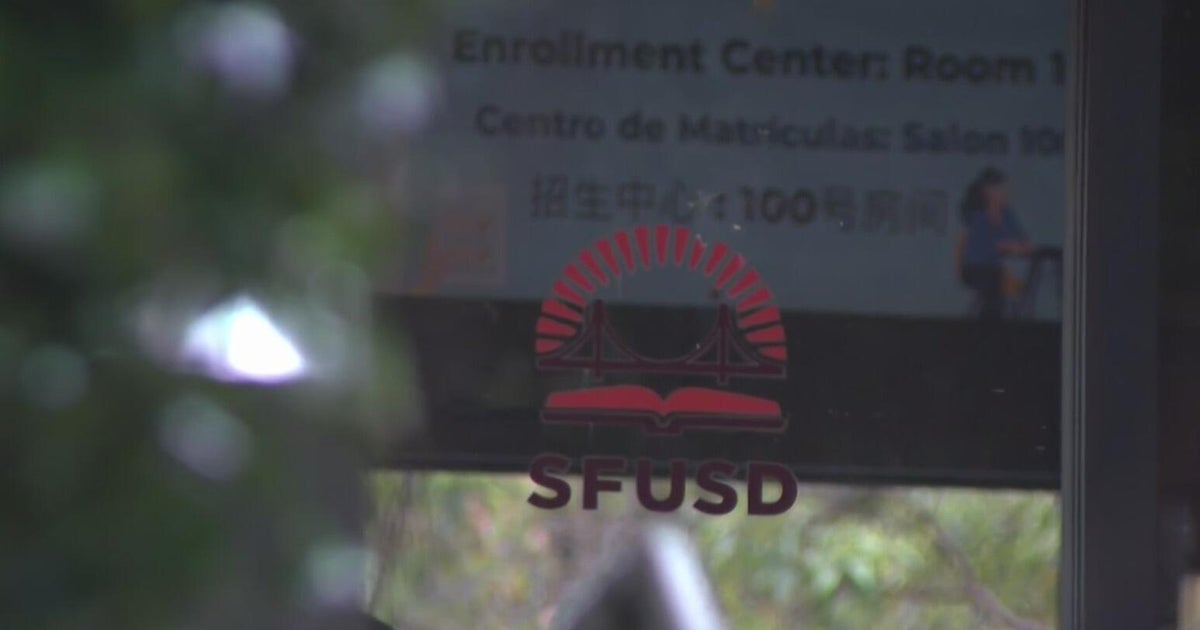How Conservative Is Enough For Texas?
AUSTIN (AP) - Like many Texas Republicans, Lt. Gov. David Dewhurst has waited in line for higher office for nearly a decade.
Now that Kay Bailey Hutchison is wrapping up a 19-year career in the U.S. Senate, Dewhurst may finally get his chance. But he first must survive the war being waged within the Texas GOP over who is the most conservative candidate to replace her.
Dewhurst has patiently held the state's No. 2 job since 2003 and has long been considered the odds-on favorite for the Senate when the time came. His record might seem unassailable for a Republican: He's a self-made multimillionaire and an established leader in a Legislature that has restricted abortion, cut spending, curbed gay rights and advanced other conservative priorities.
Yet the GOP's heir apparent is finding his promotion to Washington to be tougher than expected. Opponents deride him as not conservative enough. A leading challenger also noted that Dewhurst, as the presiding officer, has allowed several minority party Democrats to chair state Senate committees over the years.
The tone of the race is just one sign of the continuing rightward drift of politics in one of the most conservative states. With nearly 50 percent of Texas voters calling themselves "very conservative" in a recent poll, the competition in the GOP is now all about who's the purest and most doctrinaire. And longtime officeholders who rose in an earlier time can find themselves held up against the new breed of hard-liners who brook no compromise with the opposition.
Notably, all the GOP candidates in the field this year are well to the right of Hutchison, who was considered conservative when she was elected in 1993 but would now qualify as moderate.
"This is a conservative state, and it's still building off that tea party movement" that surged in recent years, said Republican strategist Bill Miller. "It's got real roots here, and they are dug in and demanding that candidates be the most conservative."
Already, the hammering may be having an effect on Dewhurst. His top challenger, appeals attorney and former state solicitor general Ted Cruz, 41, has been cutting into Dewhurst's lead in recent surveys and will probably do well enough in the May 29 primary to force his way into a runoff.
"Away from the watchful eye of conservatives, Dewhurst empowered and worked with liberal Democrats to increase spending and kill conservative legislation," said John Drogin, a spokesman for Cruz, who is a tea party favorite.
"Pure, petty, negative politics," Dewhurst said of the Republican attacks. However, while trying to keep his campaign focused on President Barack Obama, Dewhurst recently lashed out at his Republican detractors with an ad blitz.
"We don't have time for rookies and on-the-job training," Dewhurst said in remarks dismissive of his opponents.
Also running are businessman and former Dallas mayor Tom Leppert and former football player and television analyst Craig James, both of whom lag far behind. Neither Cruz nor James has held elected office. In the Democratic primary, former state lawmaker Paul Sadler faces newcomer Sean Hubbard, a party activist and small businessman.
Dewhurst, 66, is a tall Texan with an energy industry pedigree and an appreciation of cowboy culture -- he's a world-class cutting horse competitor and member of the Texas Rodeo Cowboy Hall of Fame.
He says his life experiences -- from growing up in a single-parent household in Houston to becoming the leader of the 31-member state Senate -- have prepared him for national office.
Dewhurst's father was killed by a drunken driver when Dewhurst was 3. He attended public schools in Houston, then played basketball at the University of Arizona before serving in the Air Force and going to work for the CIA in Bolivia, where he learned Spanish.
His entry into the energy business was rocky. Dewhurst's first oil-field supply company went bankrupt. But he struck it rich when another of his companies, Falcon Seaboard, which had ventured into selling electricity to utilities and industrial users, sold three power plants for $226 million.
For the last nine years, while Republican Rick Perry was becoming Texas' longest serving governor, Dewhurst held the powerful independent office of lieutenant governor, which appoints committees and guides the fate of thousands of bills.
Under Dewhurst, lawmakers limited damages paid in civil and medical malpractice lawsuits, passed a voter identification law, required a 24-hour waiting period and a sonogram before a woman can have an abortion and defined marriage in Texas as between a man and a woman. They also cut public education spending by $4 billion to help balance the budget in 2011.
But Cruz insists he's more conservative. He has been zeroing in on the Republican red-meat issues of restricting federal spending and repealing Obama's health care law, and, unlike Dewhurst, he supports building a wall along the entire Texas-Mexico border. Dewhurst favors using other forms of surveillance in some areas. Cruz asserts that he would take a tougher line against illegal immigration.
Cruz has attracted attention in a party eager to win over more Hispanic voters. The son of a Cuban immigrant father, Cruz was primary editor of the Harvard Law Review and got most of his political seasoning by arguing in front of the state Supreme Court as Texas solicitor general.
Cruz is pinning his hopes on getting into the runoff on July 31, when experts say turnout will be low and activist voters will likely choose the winner.
(© Copyright 2012 The Associated Press. All Rights Reserved. This material may not be published, broadcast, rewritten or redistributed.)
Also Check Out:







